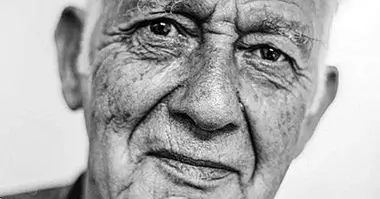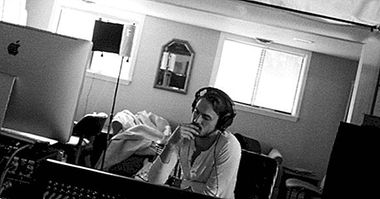Psychotic outbreak: definition, causes, symptoms and treatment
The psychotic disorders they are serious mental illnesses in which the person loses contact with reality. One of the characteristic symptoms of this type of psychopathology is the appearance of psychotic outbreaks (hallucinations and delusions).
A psychotic outbreak is a rupture of reality temporarily , and during this period of time the person who suffers it does not distinguish if what happens to him is real or fictitious. Images or thoughts appear in your mind as if everything were authentic. They may think that everyone is against them and they want to kill him or, on the other hand, they can hear voices inside him that tell him to commit suicide.
The psychotic outbreak must be treated with drugs and it is necessary to seek psychological help as soon as possible.
Psychotic outbreak: who can suffer it?
But what causes a psychotic outbreak? It seems that there is a certain genetic predisposition to suffer it , that together with environmental factors can trigger the presence of psychotic outbreaks. In diseases such as schizophrenia or paranoid disorder it is possible that, if the patient does not take medication, several psychotic outbreaks may appear throughout his life.
This rupture with reality can occur for different reasons, and not only with these two psychotic disorders. Some patients with bipolar disorder or borderline personality disorder may also experience a psychotic outbreak. In some cases, even people who have never suffered a psychotic outbreak can suffer a single outbreak after a very stressful emotional situation or by the use of drugs such as marijuana or hallucinogens.
Recommended articles:
- Research reveals why marijuana can cause schizophrenia
- Research finds that schizophrenia is the manifestation of eight genetic mutations
symptom
In cases of patients with psychotic disorders, the medication becomes necessary to avoid these episodes . But, in general, it is complicated to anticipate him and prevent him. It is usual for family members to seek help when the psychotic outbreak is present, and patients are usually admitted temporarily until the symptoms have subsided.
But nevertheless, there are certain signs that can indicate this type of behavior :
- The individual shows a behavior of social isolation , and can stop going to work or school
- Changes in dress and habits , as well as an oversight of appearance and hygiene.
- The person shows disorganized behavior , unusual, that seems lacking in sense, rare and extravagant.
- Present strange ideas that do not seem to have any relation to reality. Even if you do not share these kinds of thoughts with everyone, you might tell some people nearby.
Difference between delusions and hallucinations
Delusions and hallucinations, both present in the psychotic outbreak, are not the same nor are they expressed in the same way . The former usually manifest in delusional or paranoid disorder, while the latter are typical of schizophrenia.
But what exactly differentiates them? Delusions are false beliefs. That is, erroneous beliefs of reality about an existing fact or object. They are, in other words, a distortion of an external stimulus that is present. For example, when someone suffers delusions, they can walk through a shopping mall and believe that people who cross paths are spying on them and then give the information to the police.
On the other hand, hallucinations are false perceptions, such as hearing, seeing or feeling something that does not really exist . Patients with this condition really hear or see things, but those objects or voices are not really there, they are inventions of the mind. For example, an individual with hallucinations may believe that they speak to him through the plugs in his house.
Treatment
When a person suffers a psychotic outbreak needs immediate treatment . Since this is a serious disorder, the patient is usually admitted so that he can receive the correct pharmacological and psychological treatment. The administration of antipsychotic drugs (for example, haloperidol or olanzapine) is necessary to stabilize the patient, but psychological support is also essential, as it not only helps patients, but relatives can also benefit from the help psychological to be able to face this situation. Psychotherapy is useful to provide information, tools and support in these cases.
In some cases (for example, psychotic disorder induced by substances), the patient does not suffer psychotic outbreaks in his life . In other cases, such as schizophrenia, psychotic outbreaks may recur with some frequency. It is very important to clarify that psychotic outbreak and schizophrenia are not the same. Although both terms can sometimes be confused and used as synonyms, schizophrenia is a type of long-term psychotic disorder, whereas a psychotic outbreak is a sharp manifestation that has a short duration. The psychotic outbreak is considered a positive symptom of schizophrenia.
Do you want to know more about the different psychotic disorders that exist? In our article "The 8 types of Psychotic Disorders" you will find information about their characteristics.


















